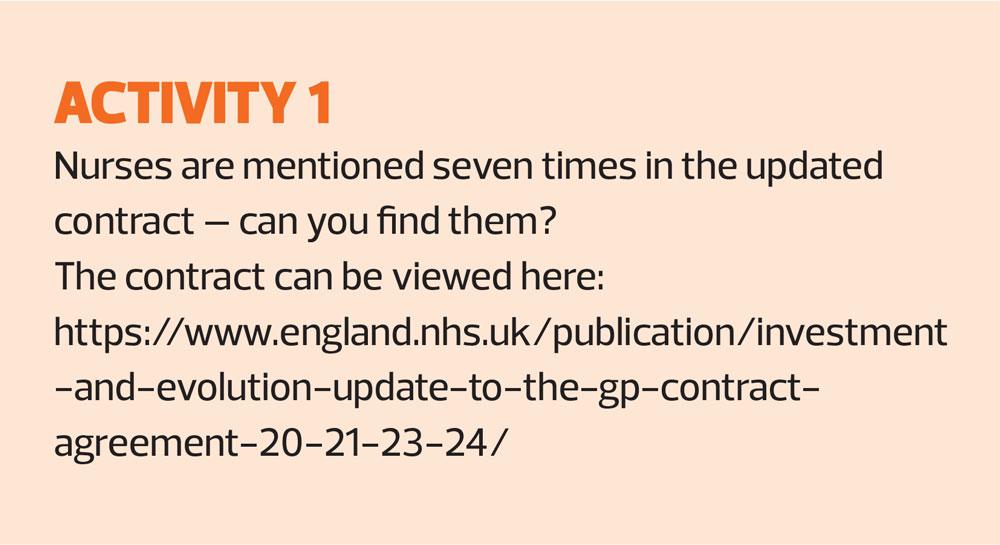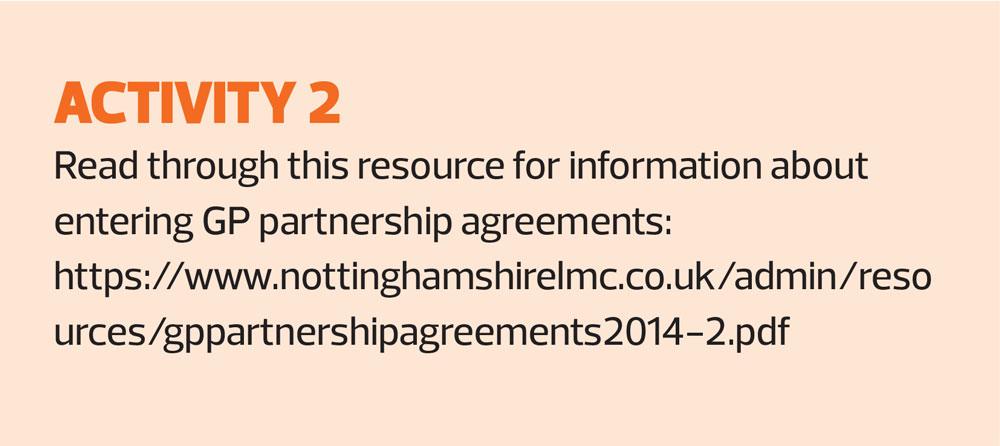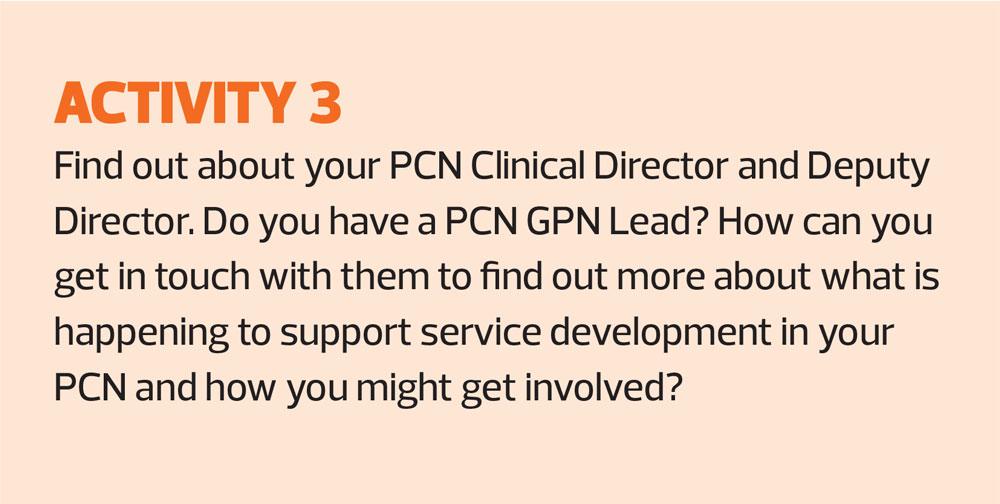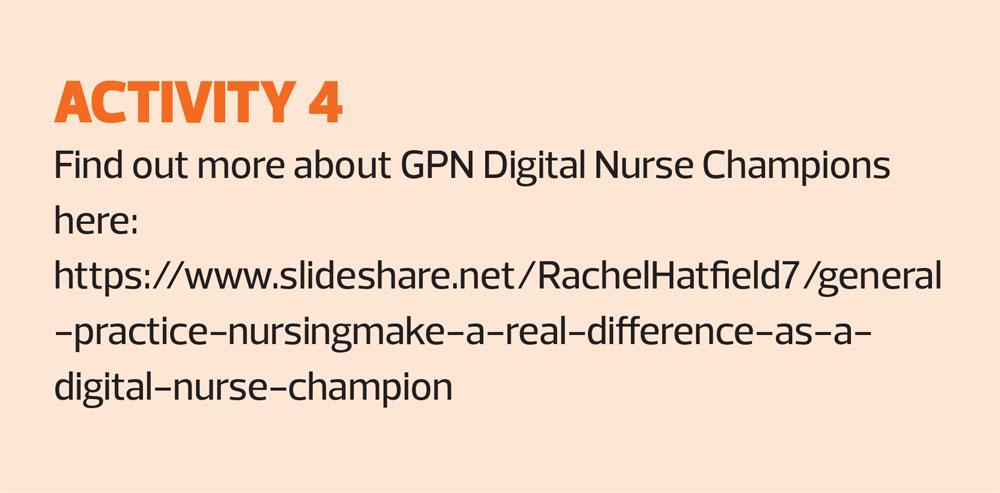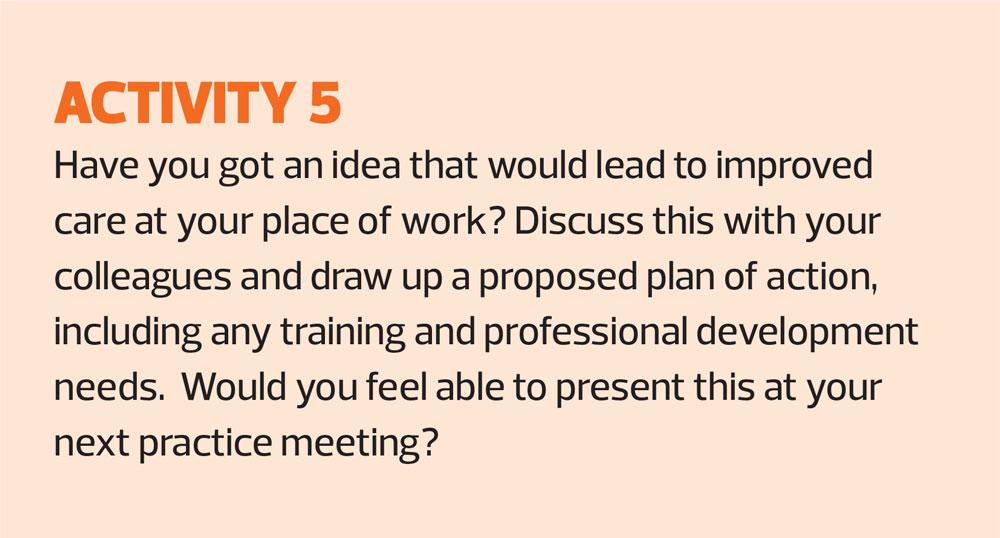What does the new GP contract mean for GPNs?
Robana Hussain Mills, RN
Robana Hussain Mills, RN
Head of Professional Standards and Leadership at Nottingham and Nottinghamshire Integrated Care System, Deputy Clinical Director, PCN Nottingham City East and Senior Primary Care Practitioner at NEMS Platform One Practice.
Rhian Last, RN
Associate at the Experience Led Care Programme, RCGP Yorkshire Faculty Board Member, Self Care Forum Board Member
How our GP employers are contracted to provide NHS services has a direct bearing on our own working lives. We explore some of the key points of the new contract, and their relevance to general practice nurses
In January 2019, a five-year GP contract framework was agreed with the intention to stabilise general practice and facilitate delivery of the NHS Long Term Plan.1,2 There was an extension to the contract, in the form of a direct enhanced service (DES) and this would be offered to general practices to enable them to form primary care networks (PCNs) generally covering populations of around 30,000 to 50,000 people. Seven national service specifications were devised:
- Structured medication reviews
- Enhanced care in care homes (working in collaboration with community services)
- Anticipatory care (again working in collaboration with community services)
- Supporting early cancer diagnosis
- Cardiovascular disease case-finding
- Personalised care, and
- Initiatives to tackle inequalities (to be agreed at local level).
There were concerns from professional organisations about the scope for delivering this contract and the PCN developments came under threat. In February 2020, after negotiation between NHS England and the BMA’s GP committee, the contract was updated.3
KEY POINTS
New roles
The updated contract provides for a significant increase in the scale of aspiration for new roles to be introduced into general practice in order to expand the primary care team. It increases the number of additional staff that can be employed and increases the roles that will be eligible for reimbursement, to include pharmacy technicians, health and wellbeing coaches, care coordinators, occupational therapists, dietitians and podiatrists.3
In our view, GPNs should embrace this initiative for collaborative working and view this as an opportunity for the greater good of PCNs. This also opens up a chance for renewed conversations to develop a standardisation of GPN employment terms and conditions. Additionally, and importantly, we also need to ensure the sustainability of our place at the primary care table. The contract also states:
‘We will also explore whether or not it is feasible to include Advanced Nurse Practitioners in the scheme, bearing in mind supply constraints and the critical need for additionality beyond the significant numbers who are already working in primary care.’3
Is that enough? We need to support GPNs to not feel powerless, invisible, unheard or ignored. A way forward is to harness GPNs’ voices, ideas and solutions and gain appropriate attention through sharing with the Government, the BMA, the Royal College of General Practitioners and the Royal College of Nursing so that this may be driven at national level. (See Activity 1).
RCN Practice Nurses’ Association chair Marie Therese Massey recently commented: ‘General practice nursing is a fundamental part of the primary care team and we are leading the development of better-integrated care in the community. The RCN wants to see that the opportunities are developed in the GP new contract to offer nurses leading roles in the future management of primary care services as equal partners with GPs, both in their individual practices and within PCNs. However, we are disappointed that the new contract does not acknowledge the crucial role of nurses in general practice in the successful delivery of the proposed changes particularly around the provision of vaccinations and immunisations and LTC management. The Contract needs to provide greater improvements to the pay and conditions of General Practice nurses, who are not covered by Agenda for Change. We need to see greater equivalence in general practice between the pay, terms and conditions of nurses and that of allied health professionals and their NHS colleagues, or the current recruitment and retention problems facing practice nursing will deepen. We have listened to member concerns and are looking at how to address them at the earliest opportunity.’4
General practice retention and recruitment
The contract seeks to address the alarming shortage of GPs with a range of changes to support their training, recruitment and retention. The Government has restated its commitment to the GP partnership model, with the introduction of a one-off £20,000 payment to GPs or other staff who enter into a practice partnership. This includes GPNs and this could provide an opportunity for career development. However, there is much to consider before taking up the commitment of a general practice partnership. (Activity 2)
To increase retention, new GPs and nurses will be offered a new two-year fellowship to support their first steps in a primary care career. Experienced GPs will also be reimbursed for mentoring their newly qualified colleagues. There is no mention of a similar support for experienced GPNs, although recently, this has been facilitated through NHS England’s GPN 10 Point Plan.5
Service specifications
The updated contract focuses on three service specifications:
- Enhanced care in care homes (in collaboration with community providers)
- Structured medication reviews and medicines optimisation
- Early cancer diagnosis
All three finalised specifications are now more succinct, with the previously proposed metrics replaced by an overall network dashboard. GPNs need to be asking questions in their practices and engaging with their PCN Clinical Directors and GPN Leads to understand how services may be redesigned and how they might get involved. (Activity 3).
Two specifications, anticipatory care and personalised care, that were to be delivered in April 2020, have now been delayed until April 2021. GPNs have rich experience which can support service design and delivery that will avoid crisis and effect personalised care.6 Now is the time to start planning GPN leadership development so that we are at the head of the PCN table at the right time to drive successful delivery of these specifications when the time comes.
Access and data
Specific interventions include a new national programme to work with PCNs to identify ways of improving access, develop a nationally consistent extended-hours offer, and expand digital services. Practices will contribute to a more robust dataset to facilitate the analysis of activity and appointment availability at a national level, something which is not currently possible. This will mean that we will be better able to gain a satisfactory understanding of capacity and demand in general practice, However, ensuring the data is of sufficient quality to be useful and comparable will be technically and operationally challenging. GPNs have local knowledge and useful insights that can support a greater understanding and interpretation of data. We have GPN Clinical Nurse Advisors for Digital Primary Care with NHSX, such as Ann Gregory and Helen Crowther, who are creating a national network to support GPN involvement in digital application (Activity 4).
Overall funding
There are other important contractual changes in the update including an increase to the global sum that practices receive per patient, and changes to vaccination and immunisation arrangements. Maternity medical services become an essential service with £12 million of new funding allocated for a universal 6–8-week health check for babies and new mothers.
The Quality and Outcomes Framework was reviewed in 2018, and the new contract outlines further changes, including two new quality improvement areas focused on improving care of people with a learning disability and supporting early cancer diagnosis.
All of these areas will resonate with GPNs as relevant to their role. As front-line workers GPNs are best placed to understand the issues and identify solutions that will lead to the improvements envisioned in the GP contract. They will need to appreciate their own skills and competencies and those of their professional colleagues and be able to identify training needs that may arise as a result of proposed service developments. (Activity 5).
HOW CAN WE GROW GPN LEADERS?
Robana Hussain Mills writes: ‘We need to get more nurses working in general practice. This means increasing student placements and having a tariff that reflects this, in line with medical students.
‘GPNs need good strong leadership to start with, to build confidence and capability within the system – the GPN 10 point plan goes some way to support this.5
‘We need protected time for GPNs to attend leadership courses, enabling them to grow into leadership roles.
‘We need to make terms and conditions equal across the board in line with other nurses working across the NHS, i.e. those who are on Agenda for Change. There is an inequality in this, that has been talked about many, many times, but not gone anywhere. We need to be talking to the BMA and Local Medical Committees as it is in part a contract issue.
‘The current GPN workforce is already likely to lose significant numbers in the next few years by virtue of those employed under the 1995 Superannuation scheme becoming eligible to take their pensions at 55 under Special Class Status: this needs to be addressed. The Government aspires to recruit 50,000 new nurses but the majority of these may well come from overseas and go straight to acute trusts.’
CONCLUSION
The updated contract articulates a clear intention to stabilise general practice so that it is able to deliver both improved access and offer an extended range of services.
There will be opportunities for collaboration and new ways of working.
GPNs need to raise their profile and bring their voice to the PCN table.
REFERENCES
1. NHS England. A five-year framework for GP contract reform to implement The NHS Long Term Plan; 2019. https://www.england.nhs.uk/publication/gp-contract-five-year-framework/
2. NHS Long Term Plan; 2020 https://www.longtermplan.nhs.uk
3. NHS England. Investment and Evolution: Update to the GP contract agreement 2020/21 – 2023/24; 2020 https://www.england.nhs.uk/publication/investment-and-evolution-update-to-the-gp-contract-agreement-20-21-23-24/
4. GP contract changes anger general practice nurses. Practice Nurse 2020;50(2):6 http://practicenurse.co.uk/index.php?p1=news&p2=2019
5. NHS England. General practice – developing confidence, capability and capacity: a ten point action plan for general practice nursing; 2018. https://www.england.nhs.uk/wp-content/uploads/2018/01/general-practice-nursing-ten-point-plan-v17.pdf
6. Last R. Making personalised care happen: implementing the 'Comprehensive Model' in general practice. Practice Nurse 2019; 49(9):33-37. http://www.practicenurse.co.uk/index.php?p1=articles&p2=1948
Related articles
View all Articles
